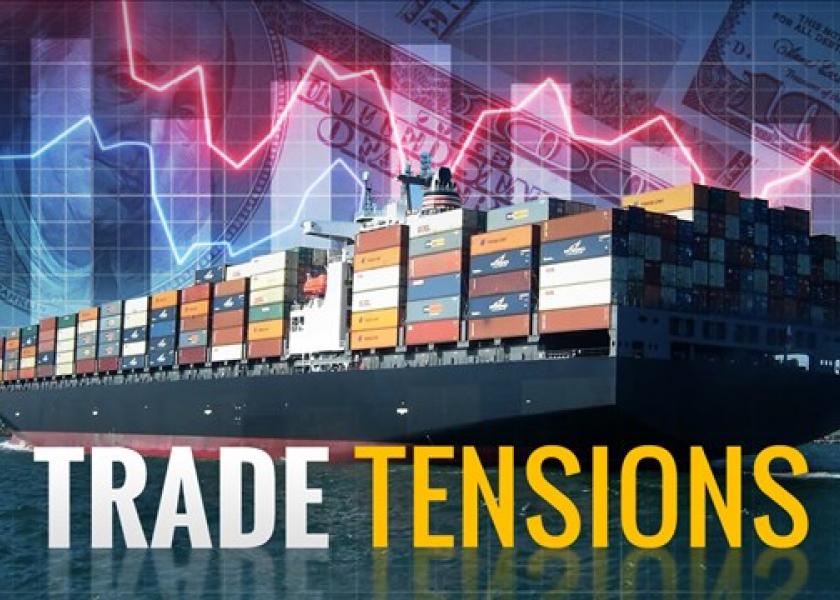Trade, COOL, Japan: Kent Bacus On NCBA Policy Priorities On AgriTalk

Selling more beef domestically and internationally, it’s a hot topic at the 2019 Cattle Industry Convention and NCBA Tradeshow.
To do so, NCBA leaders say trade issues have been, and continue to be, their top focus.
“If you look at NAFTA, it's been a tremendous opportunity for the U.S. beef industry,” said Kent Bacus, director of trade and market access for the National Cattlemen’s Beef Association (NCBA) in an interview with AgriTalk. “We've maximized our sales in both Canada and Mexico, we don't want to jeopardize that by any means at all. So, we were excited with the United States-Mexico-Canada Agreement (USMCA) because it doesn't change any of the terms for us, you know, we still have unrestricted duty-free access to both Canada and Mexico. We didn't see resurgence of any bad policies, like mandatory country of origin labeling that would jeopardize that trade, so this is a good thing we just needed to move forward.”
That will take cooperation with other members of the agricultural industry to pressure Congress to bring it up and ratify it. And just because the agreement has been signed, doesn’t mean it’s going into effect—the governments of Canada and Mexico still have to ratify the agreement as well.
“With the number of cattle that we got out there on feed right now, we better have some place take the beef,” said Chip Flory, host of AgriTalk.
“We’ve got to move that product. And with 96% of the world's population living outside our borders that's the best place to move it,” Bacus said. “That's really the priority for us—try to find the best way to maximize our sales because we’ve got to sell all parts of the cow. It’s not just meats. It's also the hides, tallow, everything. Nothing goes to waste.”
But to move forward will require bipartisan work. “We're hopeful that we'll be able to find a path forward and get it some kind of bipartisan effort to move this forward, but realistically, we're in a presidential election cycle. Will Nancy Pelosi give Donald Trump any victories at all? That's yet to be seen,” he told Flory.
Flory did raise the question: Should mandatory country-of-origin labeling (COOL) be back on the table?
“Mandatory COOL was the law of the land for five years,” Bacus said. “What did it accomplish? It cost the industry hundreds of millions of dollars in compliance fees, it did nothing to drive demand, it had nothing to build sales. All it did was it took us the WTO, hitting us with a billion dollars in retaliatory tariffs—we don't want that to happen.”
“Yes, the industry can market our product better than the federal government ever can. That's what mandatory COOL is—a government run labeling program. It didn't work then and it's not going to work again,” he added.
Japan Trade Hits Critical Juncture
“That's our biggest export market, by far. It's about 25% of our overall sales. We will exceed $2 billion dollars in sales when we get the final 2018 numbers in. That's a huge market for us. It's not just beef tongues, it's a lot of other cuts as well,” Bacus said. “The problem is we still face the 38½% tariff in that market.”
The U.S. pulled out of the Trans Pacific Partnership, which was implemented on Dec. 30, 2018, and now our beef competitors, including Australia, New Zealand, Canada and Mexico, are all supplying that Japanese market.
“There's no other market that can absorb the beef volume and the value of what we're selling into Japan,” Bacus stressed. “We have to have a trade agreement that will level the playing field for us. This is a top priority for us and it should be a top priority for everybody in the U.S. beef industry and agriculture.”
Click the player above to hear what Bacus said about the issue of mandatory country of origin labeling, and the growing importance of the South Korean market.
Additional Coverage From the 2019 Cattle Industry Convention & NCBA Tradeshow:
Is The Cattle Herd Growing? Producers Give Their Take
Get the Facts and Projections on 2019 from CattleFax
Happening Now: Cattle Industry & NCBA Trade Show Underway
Education A Top Priority During 2019 Cattlemen’s College
NCBA: Markets Expected to Remain Strong; Leverage Shift on the Horizon







